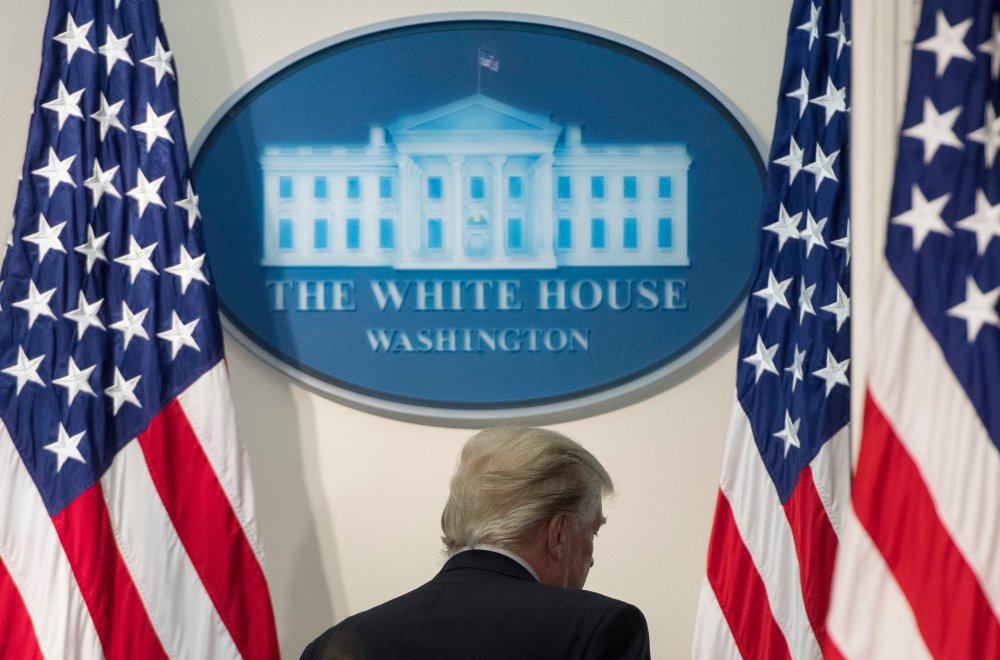In early July, Donald Trump sat down with Fox Business’ Maria Bartiromo, who wrapped up her presidential interview with what seemed like a straightforward question: “As the Commander in Chief, as the president of this great country, what can you do to bring us together?” It was easy to imagine Trump responding with vague platitudes about shared principles.
But that’s not what the president said. Instead, he replied:
“You know, it’s our people [who] are so incredible — you know, there’s probably never been a base in the history of politics in this country like my base. I hope the other side realizes that they better just take it easy. They better just take it easy because some of the languages, some of the words you — even some of the radical ideas, I really think they’re very bad for the country. I think they’re actually very dangerous for the country.”
All of this was in response to a question about how Trump can bring Americans together — a line of inquiry the president didn’t even seem to understand. His instinctual response was to further divide the national constituency: his rabid Republican base is “incredible” and unrivaled in U.S. history, while his critics are “dangerous.”
It was a reminder that in this president’s mind, national unity isn’t just elusive; it’s simply a goal for which he has no use.
Two months later, in September, Trump spoke to a television station in Montana and was asked about how best to bridge the divide among Americans. The president responded that Democrats are “making fools out of themselves” by opposing him.
Last week was a brutal week in modern American history. A Kentucky man was taken into custody after gunning down two African-American senior citizens in a Louisville supermarket (after failing to enter a black church minutes earlier). One day later, a Florida man was taken into custody and charged with sending pipe bombs to prominent Democratic leaders and officials. One day after that, a Pennsylvania gunman murdered 11 people in a synagogue.
It’s tempting to think an American president would see these events and automatically feel the need to lead, heal, and unite. But that can’t and won’t happen with Donald Trump. Part of the problem is that these qualities aren’t in his skill set, and part of the problem is that he apparently doesn’t want them to be.
Consider what Americans have heard from their president since Friday morning:
* Trump complained a few days ago that coverage of “this ‘bomb’ stuff” was interfering with his political party’s election-season messaging.
* After the arrest in Florida, Trump welcomed a group led by a right-wing conspiracy theorist — who’d blamed “leftists” for the bombs just two days earlier — to the White House for an official event, where he lashed out at Democrats and “globalists.” When some in the audience shouted “George Soros” and “Lock ’em up” during the gathering, the president chuckled briefly and repeated the “lock ’em up” line.
* A couple of hours later, the president was asked if he’s prepared to “tone down” the rhetoric under the circumstances. “I could really tone it up,” Trump replied. “Because, as you know, the media has been extremely unfair to me and to the Republican Party.” He added that he could reach out to the Americans who were targeted by the mail bombs, but he preferred to “pass.”
* A few hours after that, Trump headlined another partisan campaign rally, where he told a series of predictable lies while lashing out at Democrats, including calling out Rep. Maxine Waters (D-Calif.) by name. The California congresswoman was one of those targeted by the accused mail-bomber.












